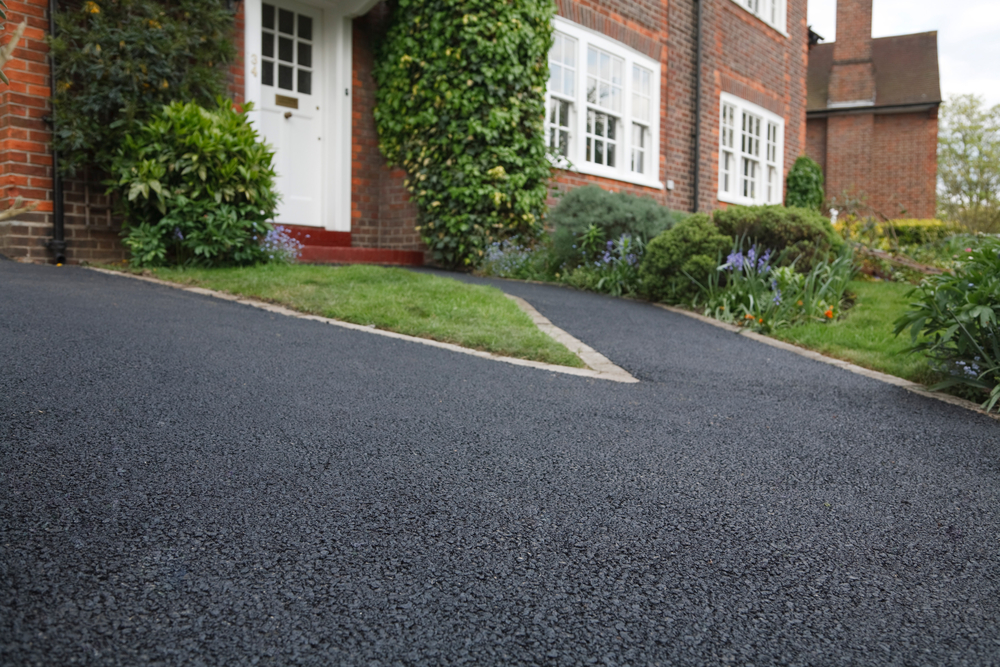Seal in Quality: Professional Solutions for Asphalt Repair and Sealing
Seal in Quality: Professional Solutions for Asphalt Repair and Sealing
Blog Article
Cold Mix Asphalt Vs. Hot Mix Asphalt: Which Is Right for You?

Composition Differences
Cold mix asphalt is produced by emulsifying the asphalt binder with water and an emulsifying agent before mixing it with aggregate. The hot mix asphalt manufacturing procedure entails warming the aggregate and asphalt binder separately prior to combining them at the asphalt plant.
Additionally, chilly mix asphalt often tends to be less dense and much more flexible than hot mix asphalt. This flexibility makes it far better matched for locations with greater levels of motion, such as driveways or roads with heavy website traffic. In comparison, warm mix asphalt is understood for its high resilience and resistance to rutting and breaking, making it a preferred choice for freeways and high-traffic roadways where durability is important.
Setup Process Differences
The process of mounting cold mix and warm mix asphalt displays notable variations in their demands and treatments. In contrast, hot mix asphalt demands a more sophisticated installment process. Due to the home heating needs, warm mix asphalt setups are generally brought out by professionals with specific tools, guaranteeing an extra structurally audio and permanent outcome.
Durability and Longevity Aspects
When considering asphalt options, longevity and long life are important elements to evaluate for enduring pavement efficiency. Hot mix asphalt (HMA) is known for its exceptional longevity and durability.
In terms of durability, HMA generally outperforms CMA as a result of its exceptional toughness and resistance residential or commercial properties. HMA sidewalks have a longer life span, calling for less constant repair services and maintenance, which can equate to set you back financial savings in the lengthy run. Furthermore, HMA pavements are more easily customizable to satisfy specific job requirements, additionally enhancing their longevity.
Price Considerations
Thinking about the economic effects is a critical facet when reviewing the selection in between warm mix asphalt (HMA) and cool mix asphalt (CMA) for sidewalk jobs. While the preliminary expense of hot mix asphalt is usually higher than that of cool mix asphalt, HMA usually gives a much more cost-efficient solution in the long run due to its remarkable resilience and longevity.
In enhancement to material costs, it's crucial to think about the expenses connected with installation and upkeep when comparing HMA and CMA. Inevitably, the decision in between HMA and CMA must take right into account not just the first expense but additionally the long-lasting financial effects to figure out the most economical option for the particular pavement project.
Environmental Effect Comparison
Comparison of the environmental impacts between hot mix asphalt (HMA) and cold mix asphalt (CMA) this contact form reveals distinct differences in visit the site sustainability practices. HMA production requires high temperatures, leading to increased power intake and greenhouse gas exhausts.
In addition, the usage of CMA frequently involves recycling existing asphalt pavement, promoting source preservation and reducing the amount of waste sent out to landfills. This recycling aspect better boosts the sustainability of CMA contrasted to HMA. On the whole, when considering the ecological influence, CMA arises as a much more ecologically sustainable selection as a result of its lower energy needs, minimized discharges, and the potential for reusing existing products. By going with CMA over HMA, road construction tasks can contribute positively to ecological preservation initiatives.
Conclusion
Finally, the choice in between cold mix asphalt (CMA) and hot mix asphalt (HMA) relies on various variables such as composition, setup procedure, sturdiness, long life, cost, and ecological impact. asphalt patch repair. While CMA offers a economical and fast service for small repairs, HMA makes sure premium sturdiness and long life for rush hour locations. Consider these factors thoroughly to establish which kind of asphalt is the appropriate choice for your paving needs

Thinking about the financial ramifications is an essential element when evaluating the option in between hot mix asphalt (HMA) and chilly mix asphalt (CMA) for sidewalk jobs. While the first expense of warm mix asphalt is generally higher than that of chilly mix asphalt, HMA often offers an extra cost-effective service in the lengthy run due to its premium sturdiness and long life. cold mix asphalt.Comparison of the environmental effects in between warm mix asphalt (HMA) and cold mix asphalt (CMA) reveals unique differences in sustainability methods.In verdict, the choice official site between cold mix asphalt (CMA) and hot mix asphalt (HMA) depends on different aspects such as make-up, installment procedure, durability, longevity, cost, and environmental impact
Report this page